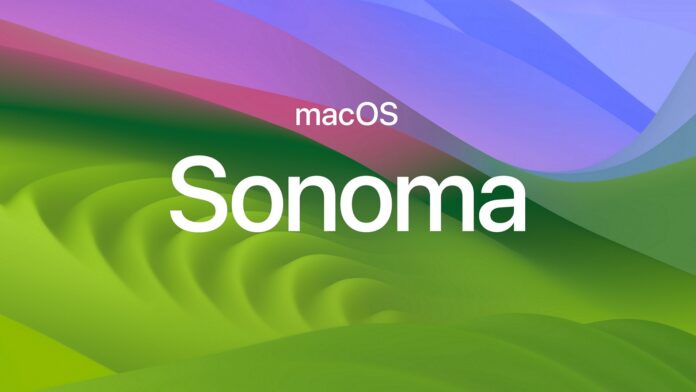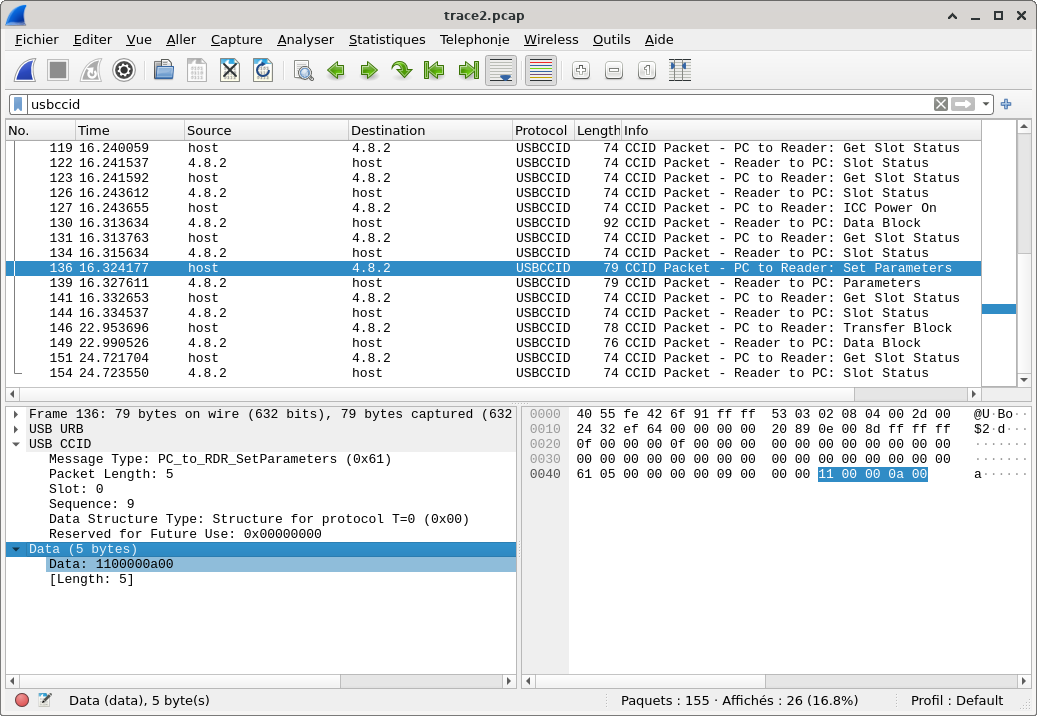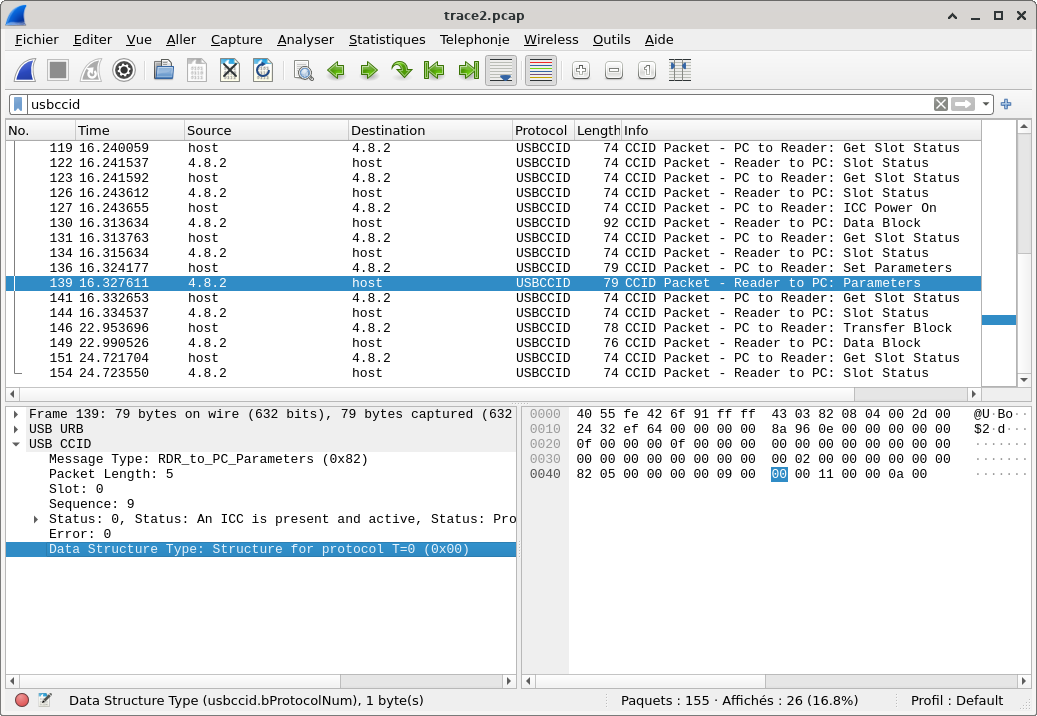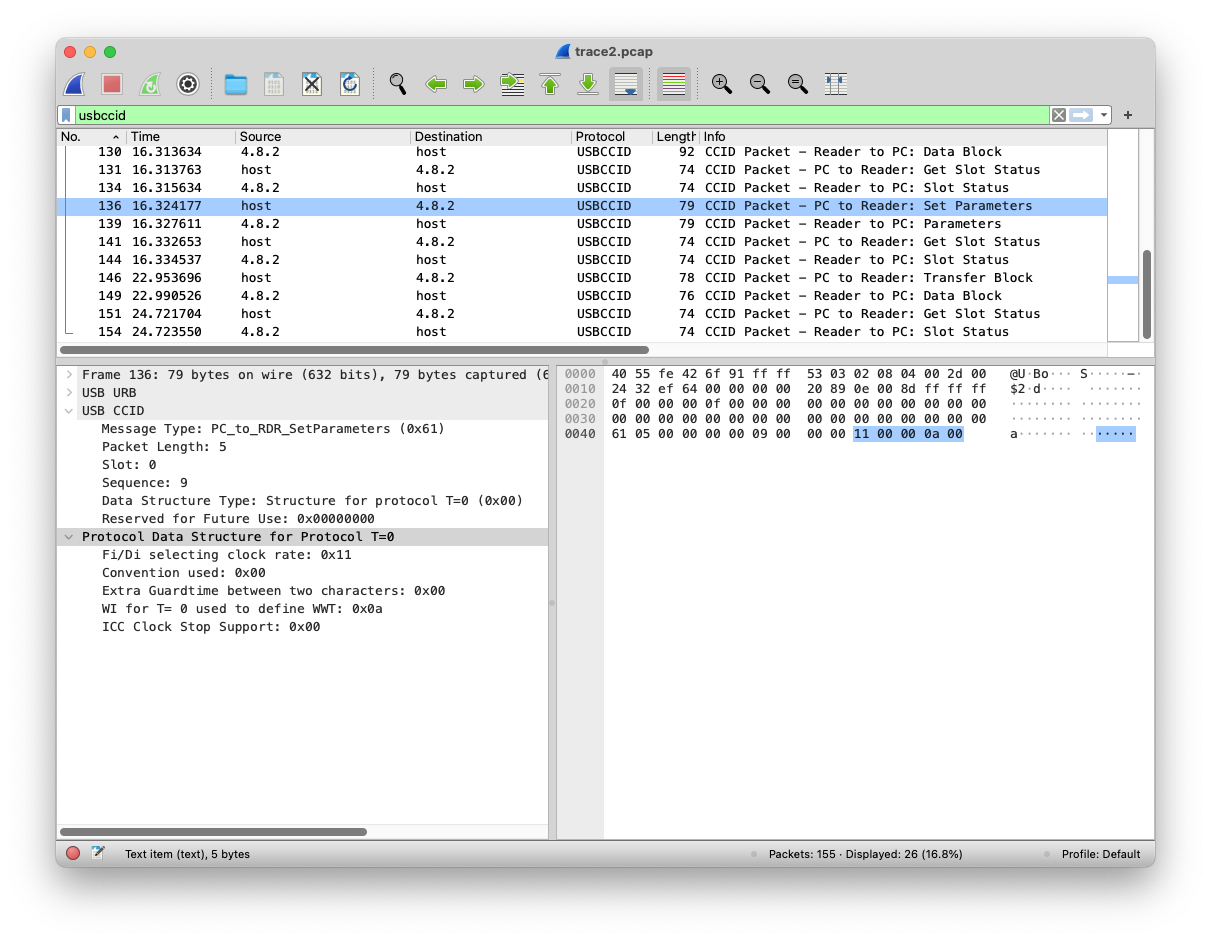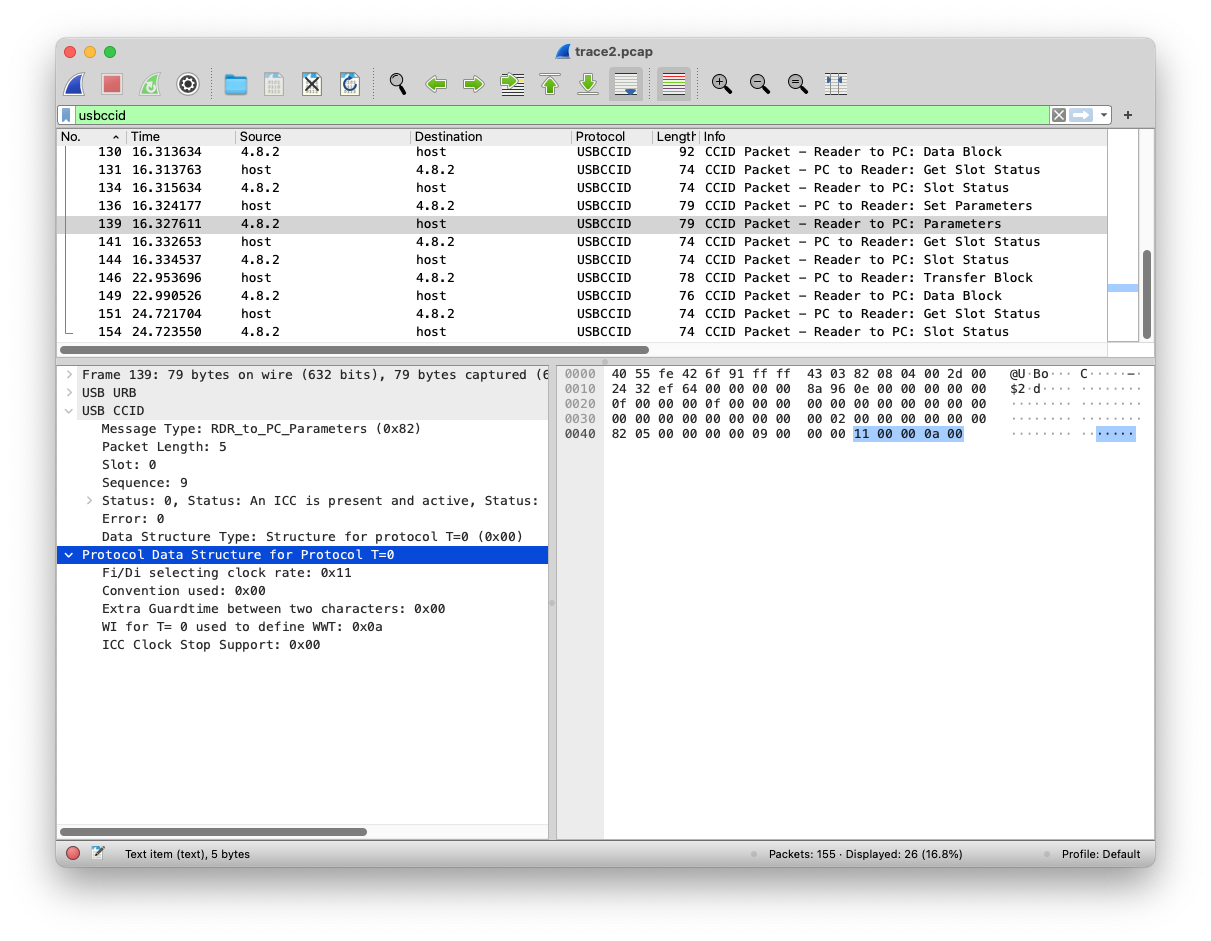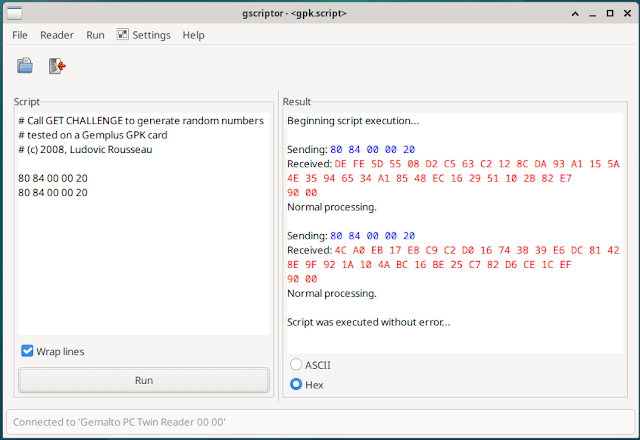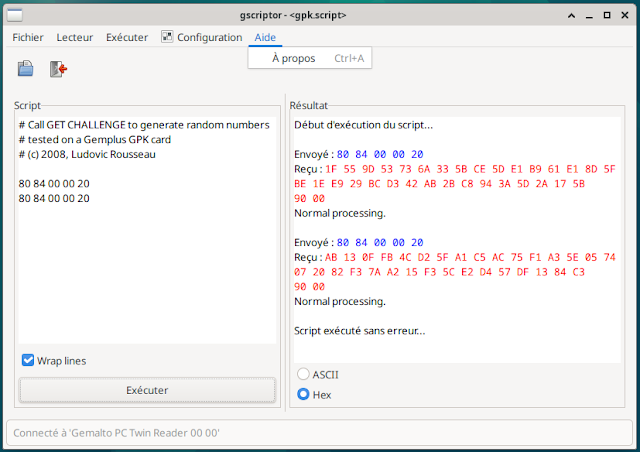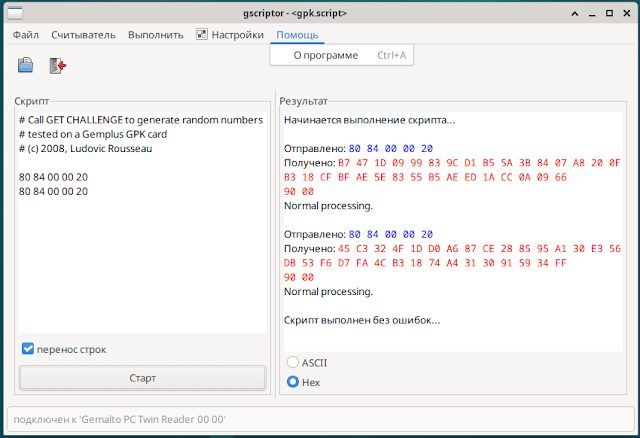macOS Sonoma bug: Race condition in SCardGetStatusChange()?
This is part of the series: "macOS Sonoma and smart cards: known bugs".
I found a problem when using a composite reader i.e. a reader with 2 (or more) smart card reader interfaces.
The PC/SC layer reports a smart card is present when no smart card is inserted.
See also
I reported this problem as FB13184685 "race condition in pcsctest or the PC/SC function used to wait for a smart card reader or smart card".
Details
For my tests I use the Gemalto Prox DU reader. This reader is a single USB device with 2 CCID interfaces: one contact and one contactless interface.
I run the command: echo 1 | pcsctest. The idea is to select the
reader 1 just after it is found.
I get the output:
% echo 1 | pcsctest MUSCLE PC/SC Lite Test Program Testing SCardEstablishContext : Command successful. Testing SCardGetStatusChange Please insert a working reader :
Then I connect a composite reader (2 CCID interfaces) with or without a card inserted and I get:
[...] Please insert a working reader : Command successful. Testing SCardListReaders : Command successful. Reader 01: Gemalto Prox Dual USB PC Link Reader Enter the reader number : Waiting for card insertion : Command successful. Testing SCardConnect : No smart card inserted.
The command is waiting after displaying
Please insert a working reader :.Then I connect my smart card reader. The reader is found.
Pcsctest displays
Waiting for card insertion : Command successful.But then the
SCardConnectfails withNo smart card inserted.
I note that NO smart card was inserted in the reader. So the
Waiting for card insertion reported as a success but that is an error.
I have the same result if a smart card is inserted in the reader.
If I run again the same command I get the expected result:
% echo 1 | pcsctest MUSCLE PC/SC Lite Test Program Testing SCardEstablishContext : Command successful. Testing SCardGetStatusChange Please insert a working reader : Command successful. Testing SCardListReaders : Command successful. Reader 01: Gemalto Prox Dual USB PC Link Reader Reader 02: Gemalto Prox Dual USB PC Link Reader 01 Enter the reader number : Waiting for card insertion : Command successful. Testing SCardConnect : Command successful. Testing SCardStatus : Command successful. Current Reader Name : Gemalto Prox Dual USB PC Link Reader Current Reader State : 0x54 Current Reader Protocol : 0x1 Current Reader ATR Size : 13 (0xd) Current Reader ATR Value : 3B 88 80 01 00 00 00 00 33 71 71 00 3A Testing SCardDisconnect : Command successful. Testing SCardReleaseContext : Command successful. Testing SCardEstablishContext : Command successful. Testing SCardGetStatusChange Please insert a working reader : Command successful. Testing SCardListReaders : Command successful. Reader 01: Gemalto Prox Dual USB PC Link Reader Reader 02: Gemalto Prox Dual USB PC Link Reader 01 Enter the reader number : %
I do NOT have the problem with a reader with only 1 smart card slot. It looks like the problem is only with multi-slots and composite readers. It looks like a race condition somewhere in the PC/SC layer (or in the CryptoTokenKit layer bellow PC/SC) of macOS Sonoma.
I do not have the problem if I connect 2 "simple" smart card readers on a USB hub and then connect the hub to the Mac.
pcsc_scan
I note I do not have this problem if I use pcsc_scan from pcsc-tools.
With no reader connected I get:
% ./pcsc_scan PC/SC device scanner V 1.6.2 (c) 2001-2022, Ludovic Rousseau <ludovic.rousseau@free.fr> Plug'n play reader name not supported. Using polling every 3600000 ms. Scanning present readers... Waiting for the first reader...
Then I connect the dual interface reader and I get the expected value:
[...] Waiting for the first reader... found one Scanning present readers... 0: Gemalto Prox Dual USB PC Link Reader 1: Gemalto Prox Dual USB PC Link Reader 01 Wed Oct 4 09:47:47 2023 Reader 0: Gemalto Prox Dual USB PC Link Reader Event number: 0 Card state: Card removed, Reader 1: Gemalto Prox Dual USB PC Link Reader 01 Event number: 0 Card state: Card removed,
Both interfaces are listed.
No card is wrongly found inserted.
Know workaround
None.
Just wait a bit after you detect a new reader is connected.
